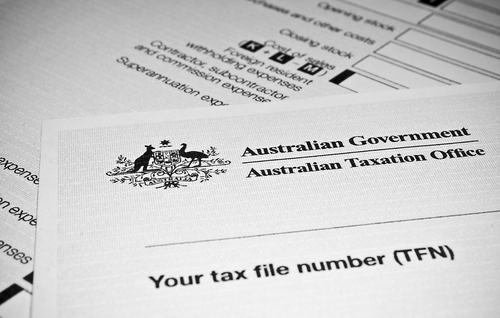
Make the Most of Your Tax Returns

You’ve only got days left to turn in your tax return before the October 31 deadline. Hopefully, you get money back and can then focus on how to actually spend it.
The ATO will issue a Failure To Lodge (FTL) penalty if your return isn’t lodged by the deadline. It’s calculated at the rate of one penalty unit for each period of 28 days or part thereof that you’re overdue. Penalty units are currently $210 ranging up to a maximum fine of $1,050 depending on how late it is.
If your tax refund tends to go towards mindless stuff such as hats you’ll never wear or boring stuff such as your car inspection, then it’s time to get real.
An ASIC poll of 2,000 people reveals that on average Australians get back roughly $2,574 on a return – with the majority (29%) spending their return paying off bills.
Deborah Southon from budgeting and debt solution provider Fox Symes says a smarter strategy would be to ensure you budget well throughout the year and are up to date with all bills beforehand. “Then when you get your return back you can really it put it towards something that feels a lot more satisfying,” she says. “Broadly speaking you should divide your return into three main areas. One lot should be for creating wealth, another should be for safeguarding your funds, and finally you should leave some money to spend on yourself.
If your tax return money is still in your account not doing much, or if you’re expecting your return soon, consider these uses:
CREATE WEALTH
Top up your superannuation
This is particularly important for the over fifties. With those that only have around 20 or less years of work left, it is important ramp up your contributions if possible. “Estimate what a comfortable level of income would be for you in retirement and ask yourself if your superannuation is on track to meet this income requirement,” says Jonathan Philpot from personal wealth management advisors HLB Mann Judd. “As a rule of thumb, a sustainable annual income would be no more than 5% of your super balance.” You can contribute a maximum of $25,000 per year into super so any money from your tax return will help.
Invest in shares
Even if the amount is small, you can still invest some of your tax refund in shares or managed funds. But protect yourself by going conservative rather than high risk. Consider investing in one or two blue-chip stocks that pay dividends. You’ll feel motivated and rewarded by regularly getting something back.
Stash it in the bank
Stashing extra cash in the bank can be a satisfying thing. There’s security knowing you have extra funds. However, you need discipline. Don’t be tempted to continually dip into your accounts! There are several options which can boost your savings over the long-term.
- Term deposits: Shop around for a competitive rate and re-invest the compound interest yearly.
- High-interest savings accounts: Some accounts offer bonus interest payments and no account fees.
- Off-set accounts: If you have a mortgage with an off-set account, the more money you put into the account, the more your mortgage balance is reduced daily.
Make home improvements
If you’ve been living with a leaky roof for ages, then it’s hardly going to increase the value of your property. “By maintaining your property and making smart updates you will add value to your home,” says Joanna Pretty from mortgage lender State Custodians. “The key areas of the home which are the most prized to potential home buyers are the kitchen and bathroom, so upgrade these areas first. The older you get, the less motivated people tend to be to fix things, so don’t leave things too late, especially if you plan to eventually downsize.”
SAFEGUARD YOURSELF
Start an emergency fund or increase it
If you don’t have an emergency fund, then you run the risk of spiralling into financial disaster should a major expense hit – such as a big medical bill. Your fund should contain about six to eight months’ worth of savings in an easily accessible interest-bearing account. If you’re starting from scratch your refund may only contribute minimally to the amount, but at least it’s something to build on.
Pay off lingering debts
Pay off outstanding credit card balances or other loans. You’ll instantly reduce the amount of interest you pay. Plus, if you can pay something off entirely, it’ll be a huge weight lifted off your shoulders. “If you have multiple cards, eliminate as many as possible learn to live with just one card with a low interest rate - or else no cards at all,” advises Deborah. “Then you need to pay down your one card regularly – but not just the minimum balance or you’ll never get anywhere. If you need to have more than one credit card ask yourself why. Obviously, you’re not saving enough to cover your expenses. If you’ve got multiple cards, cut up the ones with the highest interest rates first, then pay them off ASAP.”
FOCUS ON YOURSELF
Invest in your career
If you’re wanting a job promotion and potentially a bigger salary, then invest a little into doing a course, buying a helpful book or paying to upgrade your skills which could help your cause. If you’re a business owner, look to see where you could add value or increase productivity by buying a new piece of office equipment. What’s more it’s all tax deductible.
Treat yourself
Finally put aside some tax refund money to treat yourself. Why? Because if you merely do all the sensible stuff year after year, you may get sick of it! This could cause you to completely blow your tax return one year which you may later regret. A tax return is still a windfall of sorts, so make sure you have a little fun.

